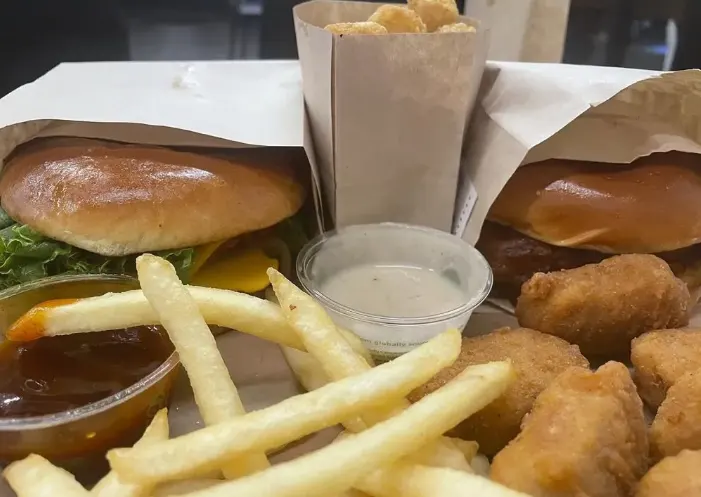Different foods can affect everyone in different ways, but here are just some of the things that frequently eating fast food might do to your body.
Many fast food items are packed with sodium, which acts as a preservative and enhances taste. “Everything that’s processed, packaged or boxed is going to have sodium,” Geib says. The problem is, high-sodium diets are known to increase blood pressure, which puts stress on your cardiovascular system. Over time, high blood pressure can stiffen or narrow your blood vessels, becoming a major risk factor for heart attack, stroke and heart failure.Ideally, most adults should try to keep their salt intake under 1,500 milligrams per day, according to the American Heart Association — though its current recommendations allow for up to 2,300 milligrams daily. Because sodium is so prevalent in our diets, it can add up quickly.
For example, one bacon cheeseburger alone can get you pretty close to the daily recommended 1,500 milligrams of sodium. So can a large piece of fried chicken breast with mashed potatoes and gravy. Even seemingly healthier options, like an Italian-style sub sandwich, can contribute more than 1,000 milligrams to your daily intake.
Eating meals that are high in sodium, high in fat or heavy with refined carbohydrates (such as bread, buns or breading) can all leave you feeling bloated. And, if you add a soda to your meal, the carbonation could make it worse. Bloating should only be temporary, but it could cramp your style if you’re wearing pants that are tighter in the waist or if you’re trying to get rings on or off your fingers. Food that’s fried in oil is high in fat — and that includes saturated fat. Eating too much saturated fat can drive up your LDL, or “bad,” cholesterol, which puts you at risk for heart disease. The American Heart Association recommends that no more than 6% of your daily calories come from saturated fat.










